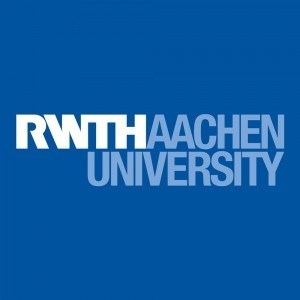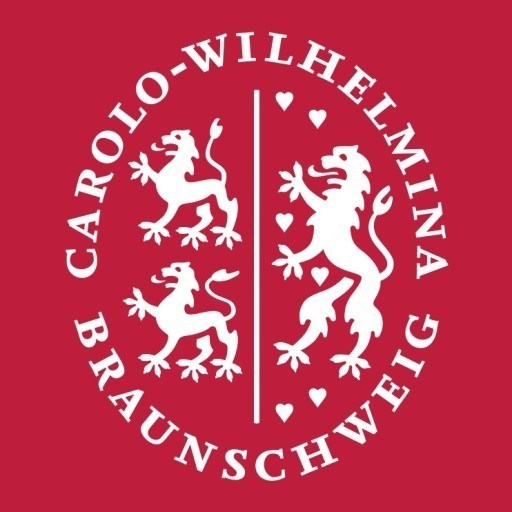Photos of university / #tu_berlin
Global Production Engineering (GPE) is a full-time, four-semester course of study offered at the Technische Universität Berlin (Berlin Institute of Technology), Germany. The curriculum is designed for outstanding international graduate students seeking to improve their personal competence portfolios in the fields of production, management, engineering and intercultural communication. The strong international orientation of the programme can be seen in the fact that 90% of our students come from countries outside Europe. Among our student body and alumni, we count people from over 50 different countries of origin. The GPE Master's programme courses are held exclusively in English. GPE is a Master's programme aimed specifically at students with a Bachelor's degree and at least one year of professional experience.
The manufacturing major was introduced at the beginning of the GPE programme in 1998. The programme is designed to train manufacturing engineers in state-of-the-art production technologies and management methods of global companies. The planning and design of flexible, adaptable factories is a major educational focus. Production planning and control, process-oriented factory layout through simulation and virtual design are all part of the mix. Designing global supply chains and factory management are key skills required to ensure economic viability and sustainability of manufacturing companies striving to obtain a competitive edge in a constantly changing global context. Particularly relevant for the programme is also an adequate knowledge conveyance of IT tools for planning and designing products and processes. The curriculum includes courses on how to work with enterprise resource planning software such as SAP. Courses in computer-aided design (CAD) software such as Solid Edge or NX are offered as well. Simulation tools for designing strategies in production planning and control, e.g. Tecnomatix Plant Simulation are taught.
The innovative GPE project-oriented education model, the programme's world-class laboratories, and its close ties with global key players in the manufacturing and energy fields prepare students to take on managerial and responsible positions within the industry right after their graduation, be it in their home countries or abroad. The last ten years have seen the formation of a global network of alumni, a network in which graduates can exchange information and provide mutual support for one another. GPE graduates today are collaborating on challenges such as construction of new production sites, global sourcing and sales of investment goods, or managing their own factories. They are employed as consultants or specialists in the manufacturing industry, e.g. for automotive, electric, electronics, aircraft and food processing. GPE graduates also shape their professional careers in non-profit organisations and governmental institutions as well as in research and development.
The manufacturing major was introduced at the beginning of the GPE programme in 1998. The programme is designed to train manufacturing engineers in state-of-the-art production technologies and management methods of global companies. The planning and design of flexible, adaptable factories is a major educational focus. Production planning and control, process-oriented factory layout through simulation and virtual design are all part of the mix. Designing global supply chains and factory management are key skills required to ensure economic viability and sustainability of manufacturing companies striving to obtain a competitive edge in a constantly changing global context. Particularly relevant for the programme is also an adequate knowledge conveyance of IT tools for planning and designing products and processes. The curriculum includes courses on how to work with enterprise resource planning software such as SAP. Courses in computer-aided design (CAD) software such as Solid Edge or NX are offered as well. Simulation tools for designing strategies in production planning and control, e.g. Tecnomatix Plant Simulation are taught.
The innovative GPE project-oriented education model, the programme's world-class laboratories, and its close ties with global key players in the manufacturing and energy fields prepare students to take on managerial and responsible positions within the industry right after their graduation, be it in their home countries or abroad. The last ten years have seen the formation of a global network of alumni, a network in which graduates can exchange information and provide mutual support for one another. GPE graduates today are collaborating on challenges such as construction of new production sites, global sourcing and sales of investment goods, or managing their own factories. They are employed as consultants or specialists in the manufacturing industry, e.g. for automotive, electric, electronics, aircraft and food processing. GPE graduates also shape their professional careers in non-profit organisations and governmental institutions as well as in research and development.
Educational organisation
120 credits must be obtained over four semesters in order to be awarded the degree Master of Science in Global Production Engineering.The GPE programme is structured into five module groups, each consisting of at least two modules. Each module is worth credit points (CP) based on the European Credit Transfer System (ECTS). One credit point is worth a workload of 30 hours. The workload includes the lecture hours, exercises, preparation, exam, etc.
During the first three semesters, students must pass modules with a total of 90 CP. Students have to complete at least 12 CP from module groups A, B, C, and D, and at least 6 CP from group E (total: 54 CP). A further 36 CP have to be chosen out of all the other modules (e.g. more than one module can be chosen from "Production") to gain a total of 90 CP. The five module groups are:
A Production
B Engineering
C Management
D Intercultural Communication
E Special Profile
Additionally, students have to attend a "workshop for intercultural communication and relationship" and a seminar "scientific working."
In semester four, an industrial internship of at least nine weeks (12 CP) must be completed. Towards the end of the programme, a Master's thesis must be written (18 CP) in order to complete the programme.
Within the international GPE in Manufacturing study course, students have the opportunity to choose their core direction and to specialise in the fields of technology management, production and operation management, product development, environmental friendly manufacturing or IT in manufacturing. TU Berlin will confer the degree of Master of Science (MSc) in Global Production Engineering.
Internships
A nine-week (minimum) internship has to be completed. The internship can be done at any company in any country except your home country.Forms of assessment
- A written or oral final exam is administered at the end of a course or equivalent coursework.
- Several graded exercises must be completed in each class.
Course objectives
Globalisation and technology development are advancing rapidly. In a global market, companies must balance the ability to create and design innovative solutions as well as the ability to exploit them. Industry-based companies demand strategy-oriented personnel with a solid technological basis on the one hand and an entrepreneurial attitude on the other.Rather than focusing on business administration, Global Production Engineering (GPE) enables engineers to create systematic technological innovations, combined with efficient and effective industrial business management.
Language requirements
If you have studied in the UK, Ireland, the USA, Canada, Australia or New Zealand, your Bachelor's certificate is accepted as proof of your English proficiency.If this is not the case, the following tests/results are accepted:
IELTS 6.5 or TOEFL IBT 70 or TOEFL CBT 190 or TOEFL PBT 520 or CAE pass or CPE pass (minimum scores)
Generally, tests should have been taken not more than twelve months prior to your application.
Language skills in German are an advantage.
Academic requirements
Requirements for successful application to the GPE study programme are:- Bachelor of Engineering or equivalent
- Excellent grades
- English proficiency, at least: IELTS 6.5 or TOEFL IBT 70 or TOEFL CBT 190 or TOEFL PBT 520 or CAE pass or CPE pass
- At least one year of professional experience
- German knowledge is advantageous.
Enrolment fees
Approx. 300 EUR per semester, including a public transport ticket for Berlin and administration fees for TU BerlinCosts of living
700-800 EUR to cover personal expenses, depending on personal lifestyleJob opportunities
It is possible to work as a student research assistant or a teaching assistant at the TU Berlin. Many job opportunities are available to students. Students may also apply to be student employees in the Berlin region at companies such as Siemens and Bombardier.Arrival support
A welcome guidebook will be sent to you prior to your arrival in Germany, describing all important aspects of living in Germany, and especially in Berlin. In addition, to help you get started in Berlin and within the GPE programme, we offer a senior-junior programme. This programme was designed to help you throughout your first semester and especially during the first couple of weeks in Berlin. Seniors are experienced GPE students who have volunteered to take part in this initiative. Your senior will pick you up at the airport and will help with your registration and residence permit. Seniors can also introduce newcomers to student life in Berlin.Services and support for international students
The programme offers extensive services including individual guidance regarding the structuring of course selection, a senior student programme including pick-up service at the airport, supporting and advising new students, an introduction event where you will be introduced to TU Berlin, the GPE programme, a module presentation, a presentation of important regulations, lecturers and professors and much more. Services also include a PC pool reserved for GPE students including print service, library facilities, special literature in English, a separate examination office (to avoid long waiting periods), the GPE campus management system, application and soft skill trainings, a collection of internship and job contacts, and a Graduate Alumni Partnership network (GAP). The programme provides a long list of companies that have already employed a large number of GPE graduates, including Daimler Benz, Rolls Royce, Siemens, BMW, VW etc. Students can also participate in visits to fairs, companies, and important industry regions such as the Hannover Fair, Inter Solar, Solar Valley, etc.Our Student Office will help you gladly with all your issues - ranging from visa questions to heath insurance.
Accommodation
There are several possibilities for finding accommodation in Berlin. Student dormitories as well as single apartments or larger apartments shared with flatmates are popular among German students. Average costs for an apartment or a room in a shared apartment may vary from 250 EUR to 400 EUR depending on the size and configuration of the apartment. Utility costs of 50 to 80 EUR are usually not included in the rent. Your senior will support you in renting appropriate accommodation.http://www.house-of-nations.com
http://www.studentenwohnheim.de










